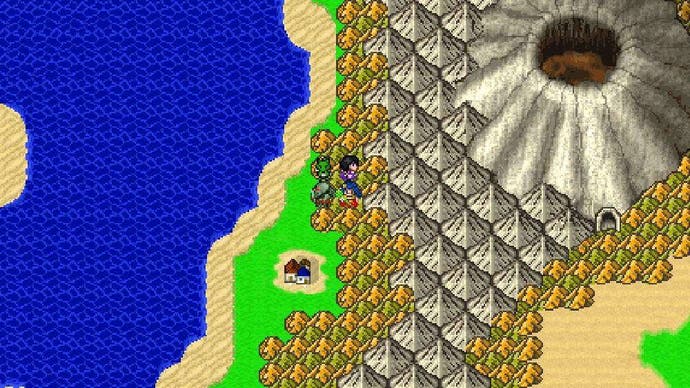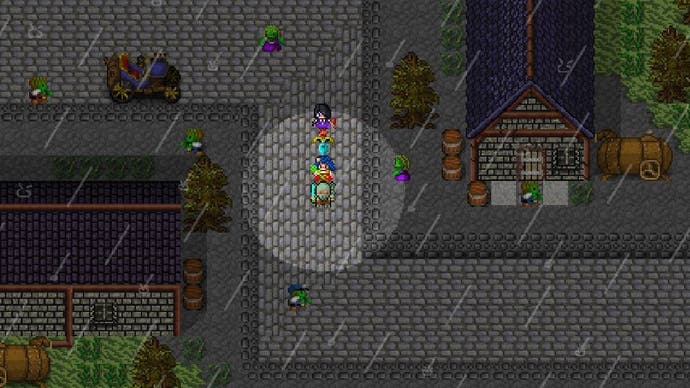Cthulhu Saves The World
Old gods, new tricks.
I'm cynical about blatant nostalgia, mostly because I'm incredibly susceptible to it. Alarm bells go off whenever it seems that something – be it book, movie or videogame – is relying on my rose-tinted glasses to work. All the same, give me the sound of a Spectrum loading and I melt like butter.
My attachment to the SNES is less ingrained, though I do love a great many games from its heyday. So when I say Cthulhu Saves The World is already one of my favourite games of 2011 you can be sure I've not been swayed by its astonishingly precise pastiche of early 1990s JRPG cliches, strident synth music, chunky menus and all. It's simply a really clever, hugely enjoyable game, and it's as much honest tribute as cheeky spoof.
The title tells you all you need to know about the story. Cthulhu, the legendary Old God of H.P. Lovecraft's clammy horror mythos, returns to our realm, but before he can lay waste to humanity, his power is sapped by a mysterious sorcerer. The only way for him to reclaim his infernal abilities is to become a hero. So Cthulhu sets about saving the world so he can destroy it himself.

Portrayed in chunky pixellated form, he's rather adorable for a gibbering emissary of aeons-old evil. He's also wonderfully grumpy, arguing with the text-box narrator who introduces his tale and reluctantly playing the good guy, even as he gathers a posse of unlikely companions who chide him for his genocidal impulses.
Gameplay is much as you'd expect if you played any of the early Final Fantasies or Breath of Fires. You scurry around a top-down world map, entering towns to stock up on new weapons and get new quests, then trotting off to the nearby dungeon, shrine or forest to do whatever needs to be done.
Experience is earned along the way, health and magic points grow ever higher and new attacks and abilities keep things fresh. From a structural point of view, it's a note-perfect recreation of the genre as it once was.

That's not to say Cthulhu Saves The World is solely an exercise in mimickry. There have been tweaks and improvements to the timeworn template as well. You can save anywhere, for example, a welcome addition that nonetheless leads Cthulhu to scoff, "What is this? A first-person shooter?"
Random encounters inevitably rear their head, but the game has a smart way of preventing them becoming too annoying. Once you've endured 25 battles in an area the random intrusions are stopped, although you can still trigger a fight from the menu if you need to grind some XP.
Also worthy of note is the branching level-up system. This marks each new level with a choice between two evolutions of the character's skill set. There's a nice choice between passive abilities, simple stat boosts and new or improved attack types. It soon becomes clear this is a game that requires real strategic thinking as building a balanced party is essential.


